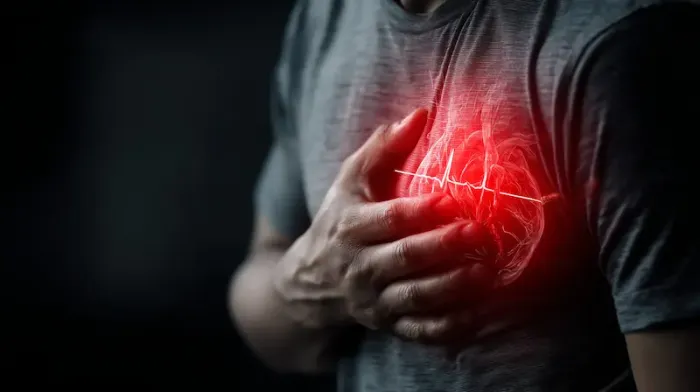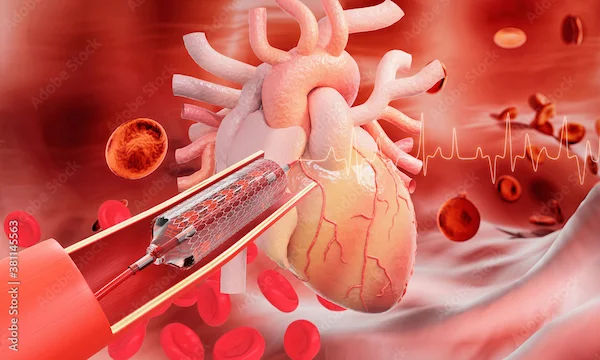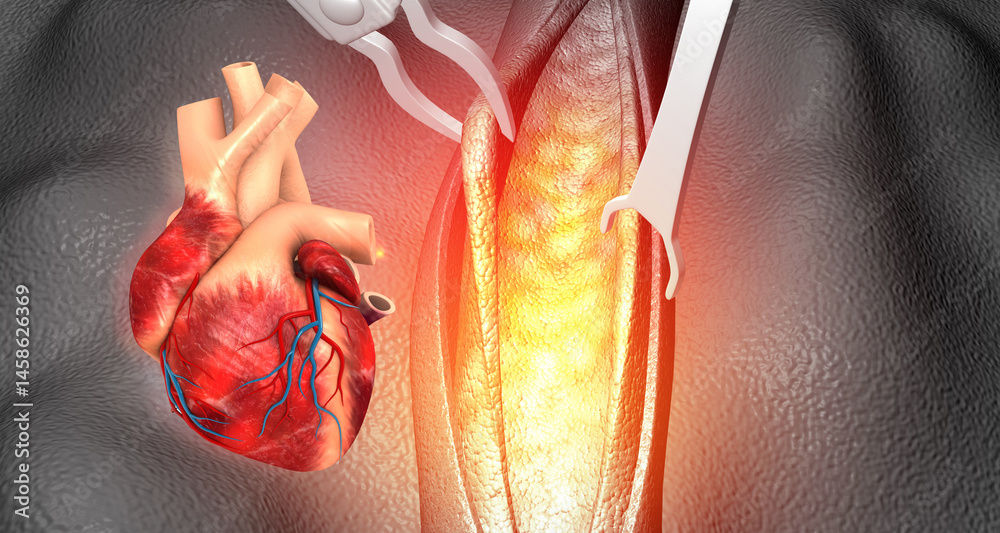Signs Of Cardiac Diseases And Prevention
Know about the cardiac diseases, what it is, signs of trouble, risk factors, preventive strategies and screening for the heart health.

Written by Dr. Dhankecha Mayank Dineshbhai
Reviewed by Dr. Shaik Abdul Kalam MD (Physician)
Last updated on 13th Jan, 2026

Introduction
Your heart is the relentless engine that powers your entire life. Yet, often, we take its steady rhythm for granted until something feels off. Cardiac diseases remain the leading cause of death globally, but here's the empowering truth: they are also among the most preventable. Understanding the early whispers of trouble is your first and most powerful defense. This guide goes beyond just listing symptoms; it empowers you with a proactive plan. We will decode the critical warning signs of cardiac diseases from the unmistakable to the easily overlooked—and provide a practical, actionable blueprint for prevention. By learning to listen to your body and adopting heart-smart habits, you can significantly strengthen your defenses and ensure your heart keeps beating strong for years to come.
Understanding Cardiac Disease: More Than Just a Heart Attack
When people hear "heart disease," they often think of a dramatic heart attack. However, the term "cardiac disease" or "cardiovascular disease" is an umbrella term for a range of conditions that affect your heart's structure and function. It's a spectrum of issues, from narrowed blood vessels to problems with your heart's muscle, valves, or rhythm.
Consult a General Practitioner for Personalised Advice
What Exactly is Heart Disease?
At its core, most cardiac diseases involve a problem with the blood vessels (vascular disease) or the heart muscle itself. The most common underlying process is atherosclerosis, a condition where plaque, a combination of fat, cholesterol, calcium, and other substances, builds up inside your arteries. This buildup narrows the arteries, making it harder for blood to flow through. If a clot forms, it can completely block the blood flow, leading to a heart attack or stroke.
Common Types of Cardiac Conditions
Coronary Artery Disease (CAD): The most common type, caused by atherosclerosis of the coronary arteries that supply blood to the heart muscle.
- Heart Failure: This doesn't mean the heart has stopped. It means the heart muscle isn't pumping blood as well as it should, leading to fatigue and shortness of breath.
- Arrhythmia: Abnormal heart rhythms, where the heart may beat too fast, too slow, or irregularly.
Valvular Heart Disease: Damage to or a defect in one of the four heart valves that regulate blood flow. - Recognising the type is less important for a layperson than recognising the symptoms that signal something is wrong,
which we will delve into next.
Listen to Your Body: Key Warning Signs of Cardiac Trouble
Your body often sends distress signals long before a major cardiac event. Heeding these early signs of heart disease can be life-saving.
Chest Discomfort: The Classic Red Flag
The most well-known symptom is chest pain or discomfort, often described as pressure, squeezing, fullness, or pain in the centre or left side of the chest. It's the hallmark of angina, which occurs when the heart muscle doesn't get enough oxygen-rich blood. The key detail is that it's often triggered by physical or emotional stress and relieved by rest. However, note that not all chest pain is cardiac, and not all cardiac issues cause classic chest pain.
Beyond the Chest: Other Common Symptoms
Cardiac symptoms can manifest far from your chest. Shortness of breath (dyspnea), especially when lying down or with minimal exertion, can indicate that your heart isn't effectively pumping blood, causing fluid to leak into your lungs. Heart palpitations—the feeling that your heart is fluttering, pounding, or skipping a beat—can point to an arrhythmia. Dizziness, lightheadedness, or even fainting can occur if your heart isn't pumping enough blood to your brain.
The Silent and Subtle Signs Often Ignored
Some symptoms are so vague that people blame them on ageing or stress. Unusual fatigue is a major one. If you suddenly feel exhausted after your normal routine (e.g., grocery shopping) without a clear reason, it could be your heart struggling. Another subtle sign is swelling in the legs, ankles, and feet (oedema), which happens when the heart's pumping power is weak, causing blood to back up in the veins and fluid to build up in tissues.
Unique Insight: Women are more likely than men to experience these "atypical" symptoms like unusual fatigue, nausea, vomiting, and back or jaw pain, which is why their heart conditions are sometimes missed or misdiagnosed.
If you experience any persistent or concerning combination of these symptoms, it is crucial to consult a doctor. You can book a quick online consultation with an experienced cardiologist on Apollo24|7 for an initial evaluation without delay.
Know Your Risks: Factors Within and Beyond Your Control
Prevention starts with understanding what you're up against. Risk factors are conditions or habits that make you more likely to develop a disease.
Non-Modifiable Risk Factors (Age, Gender, Genetics)
These are the cards you're dealt. Your risk increases as you get older. Men are generally at higher risk at an earlier age, though women's risk increases and can surpass men's after menopause. A family history of early heart disease (in a father or brother before age 55, or a mother or sister before age 65) also increases your risk. You can't change these, but knowing them should make you more vigilant.
Modifiable Risk Factors: Where Prevention Takes Hold
This is where your power lies. These are the factors you can influence through lifestyle and medication:
- High Blood Pressure (Hypertension): A silent force that damages arteries over time.
- High Cholesterol: Leads to the buildup of plaques in arteries (atherosclerosis).
- Smoking: Chemicals in tobacco damage blood vessels and heart muscle.
- Diabetes: Significantly increases risk, as high blood sugar can damage blood vessels.
- Obesity: Excess weight strains the heart and is linked to other risk factors.
- Physical Inactivity: Contributes to obesity, high blood pressure, and high cholesterol.
- Unhealthy Diet: A diet high in saturated fats, trans fats, salt, and sugar.
- Stress: Unmanaged stress can lead to high blood pressure and unhealthy coping behaviours.
Your Blueprint for a Healthy Heart: Proactive Prevention Strategies
The best treatment for cardiac diseases is to prevent them from starting. This isn't about a single grand gesture but a series of consistent, daily choices.
Heart-Healthy Eating: The Plate Method
Forget fad diets. Focus on a sustainable, balanced approach. Imagine your plate: fill half with colourful fruits and vegetables, a quarter with lean protein (fish, poultry, legumes), and a quarter with whole grains. Prioritise foods rich in fibre and omega-3 fatty acids (like salmon, walnuts, and flaxseeds) and limit processed foods, sugary drinks, and red meat. This approach naturally helps manage weight, cholesterol, and blood pressure.
Get Moving: Exercise as Medicine for Your Heart
Aim for at least 150 minutes of moderate-intensity aerobic exercise (like brisk walking, cycling, or swimming) per week. That's just 30 minutes, 5 days a week. Exercise strengthens your heart muscle, improves circulation, helps maintain a healthy weight, and lowers blood pressure. It's one of the most effective tools for how to prevent heart attacks naturally.
Stress Less, Live More: Managing Mental Wellbeing
Chronic stress keeps your body in a constant "fight-or-flight" mode, raising blood pressure and increasing inflammation. Find healthy outlets like yoga, meditation, deep breathing exercises, or hobbies you enjoy. Prioritising sleep (7-9 hours per night) is also a critical component of stress management and overall heart health.
The Power of Regular Health Screenings
You can't manage what you don't measure. Regular check-ups are your strategic advantage. Knowing your numbers, blood pressure, cholesterol levels, and blood sugar is non-negotiable. If numbers are high, work with your doctor on a plan to bring them down through lifestyle changes or medication. For convenience, Apollo24|7 offers convenient home collection for essential tests like lipid profile (cholesterol) and HbA1c (for diabetes screening), making it easier than ever to stay on top of your health.
Conclusion
Protecting your heart is a lifelong journey of mindful choices, not a single destination. By learning to recognise the early signs of cardiac diseases—both the obvious and the subtle—you empower yourself to seek help before a crisis occurs. More importantly, by embracing a proactive approach to prevention, you can dramatically alter your health trajectory. It's about consistently choosing nourishing foods, finding joy in movement, managing stress, and partnering with your doctor through regular check-ups.
Consult a General Practitioner for Personalised Advice
Consult a General Practitioner for Personalised Advice

Dr. Mainak Baksi
General Practitioner
13 Years • MBBS , MD (MPH)
Howrah
Mainak Baksi Clinic, Howrah
(50+ Patients)

Dr Divya Lekha Gunta
General Practitioner
10 Years • MBBS, MD (Pathology)
Visakhapatnam
Apollo 24|7 Clinic - Andhra Pradesh, Visakhapatnam

Dr. Rajib Ghose
General Physician/ Internal Medicine Specialist
25 Years • MBBS
East Midnapore
VIVEKANANDA SEBA SADAN, East Midnapore

Dr Suseela
General Physician
5 Years • MBBS
Bengaluru
Apollo Medical Center, Marathahalli, Bengaluru

Dr. Suvadeep Sen
Critical Care Specialist
12 Years • MBBS, MD, FNB (CRITICAL CARE MEDICINE), EDIC
Mumbai
Apollo Hospitals CBD Belapur, Mumbai
Consult a General Practitioner for Personalised Advice

Dr. Mainak Baksi
General Practitioner
13 Years • MBBS , MD (MPH)
Howrah
Mainak Baksi Clinic, Howrah
(50+ Patients)

Dr Divya Lekha Gunta
General Practitioner
10 Years • MBBS, MD (Pathology)
Visakhapatnam
Apollo 24|7 Clinic - Andhra Pradesh, Visakhapatnam

Dr. Rajib Ghose
General Physician/ Internal Medicine Specialist
25 Years • MBBS
East Midnapore
VIVEKANANDA SEBA SADAN, East Midnapore

Dr Suseela
General Physician
5 Years • MBBS
Bengaluru
Apollo Medical Center, Marathahalli, Bengaluru

Dr. Suvadeep Sen
Critical Care Specialist
12 Years • MBBS, MD, FNB (CRITICAL CARE MEDICINE), EDIC
Mumbai
Apollo Hospitals CBD Belapur, Mumbai
More articles from Heart Attack
Frequently Asked Questions
1. Can you reverse heart disease?
While you can't entirely 'reverse' established damage like plaque buildup, you can absolutely halt its progression and even shrink plaques significantly through aggressive lifestyle changes and medical therapy. This is often called 'disease regression,' and it dramatically reduces the risk of heart attacks.
2. What is the best exercise for heart health?
A combination of aerobic exercise (walking, running, swimming) and strength training is ideal. Aerobic exercise strengthens your heart and lungs, while strength training improves muscle mass and helps control weight and blood sugar. Aim for 150 minutes of moderate aerobic activity per week.
3. I'm young and fit. Do I still need to worry about heart disease?
While risk increases with age, the foundation of heart disease (like atherosclerosis) can begin in young adulthood. Poor habits in your 20s and 30s can set the stage for problems later. Furthermore, certain conditions like genetically high cholesterol or underlying arrhythmias can affect young, fit individuals. Prevention is always relevant.
4. How does stress directly cause heart problems?
Chronic stress leads to elevated cortisol and adrenaline levels, which can increase blood pressure, heart rate, and inflammation. It can also lead to unhealthy coping behaviours like overeating, smoking, or physical inactivity, which are direct risk factors for cardiac issues.
5. What is the difference between a heart attack and cardiac arrest?
A heart attack is a circulation problem—a blocked artery prevents blood from reaching a part of the heart. A cardiac arrest is an electrical problem—the heart malfunctions and stops beating unexpectedly. A heart attack can trigger a cardiac arrest, but they are not the same.

.webp)


